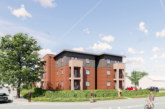Ruby Giblin, Partner in the Housing Finance and Social Housing team at Winckworth Sherwood, puts forward seven reasons why Modern Methods of Construction is coming to you in 2021.
As we move into 2021 in the wake of a year of unprecedented uncertainty, the local authority sector, through partnering, joint ventures, or otherwise, seek to play their part in reaching the 300,000 annual social housing target, which in recent times has become even more imperative.
Modular methods of construction, or MMC, with component parts manufactured in a factory and assembled elsewhere, have been talked about for a number of years. With its speed, precision quality and green credentials, it ticks all the boxes, but the cost, largely due to small scale production, the ‘cottage industry’ nature of the manufacturing process and the failure of any mass rollout, despite government support, has held back deployment on any significant level.
A lack of funding by banks and investors due to insufficient security has added further to this malaise. Traditional funders are anxious about issues such as sufficient and appropriate valuations, which are not available at the present time, the cost of lifecycle replacement and maintenance, saleability on enforcement, and whether there is a market for these units for funders to offload upon default? However, help is at hand, with 2021 finally seeing solutions to develop the requisite charging model.
So why now?
There are seven factors driving change:
One. 2021 has seen the two predominant valuers in the housing sector join together (JLL and Savills) to move matters forward with the launch of the MMC Information Standard (a list of valuers’ requirements) which will allow the valuers to issue reliable, consistent valuations for funders, a sample with the co-operation of UK Finance representing the major funders in the sector is underway.
Two. In addition, the valuers have agreed on particular MMC conditions precedent including assurance schemes and warranties. Mark Farmer, the UK Housing Czar, has listed three approved new-build insurance warranty providers (BLP, NHBC and MD Warranty Inspection Services) in a Memorandum of Understanding. At last, some clarity on the issue of warranties has been provided.
Three. NHBC has issued a bespoke MMC warranty, tracking the lifespan of a MMC building in its new NHBC Accepts product. If this is obtained from inception, funders have been positive about accepting this and will consider whether an assurance product, such as BOPAS, which is a fundamental MMC requirement, will also still be required.
Four. The MHLGC have heralded the arrival of the new Affordable Housing Guarantee scheme, where £3bn of funds is available for new-build schemes, actively encouraging the charging of MMC properties as acceptable security. Strategic Partnerships also require 25% of properties built with government monies to be MMC products, providing opportunities for local authorities to join with Registered Providers and/or developers to accelerate social housing development.
Five. Groups such as Building Better, sponsored by the National Housing Federation and Offsite Alliance, which promotes SME manufacturers (both groups are supported by Mark Farmer), are striving towards consistency for MMC manufacturers. Building Better consists of RPs and local authorities that exchange their common MMC experiences to work out best practices. They recently held a roundtable for funders that raised awareness of MMC products for funders. Offsite Alliance is working with Homes England to record MMC data and form consortiums of SME manufacturers so if one fails others can step in, and will form a prototype of social housing units so there will be categorisation and consistency so funders will be comfortable.
Six. New funders have entered the market, for example THFC who are setting aside funding specifically for MMC units.
Seven. The environmental, social and governance movement has gained traction amongst investors, with a space at the table for eco-friendly, low carbonisation MMC methods.
As the year unfolds, has MMC finally come of age?









